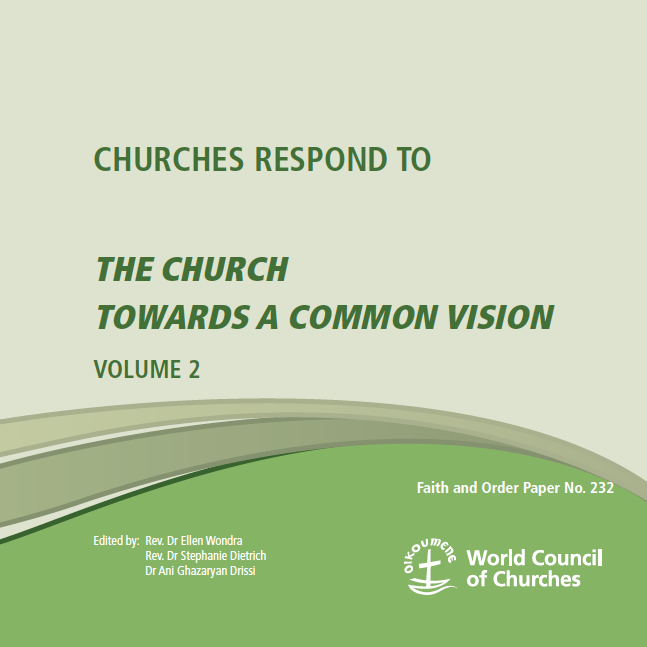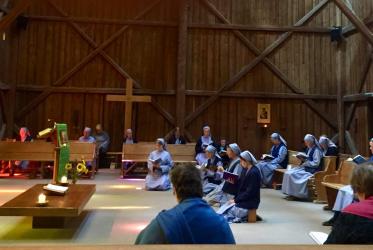Displaying 61 - 80 of 85
Faith and Order Paper No. 232
23 February 2021
Pray without ceasing!
04 February 2021
In pictures: Week of Prayer for Christian Unity
01 February 2021
WCC to host online prayer for Week of Prayer for Christian Unity
21 January 2021
Love and Witness
Proclaiming the Peace of the Lord Jesus Christ in a Religiously Plural World
18 January 2021
Christian unity strengthens between Sweden, Malta
23 January 2020
Praying for unity with the Sisters of Grandchamp in 2021
20 September 2019
Growth in Agreement IV:
International Dialogue Texts and Agreed Statements, 2004–2014, Volumes 1 and 2
01 February 2017
Hosanna! Ecumenical Songs for Justice and Peace
01 August 2016


















